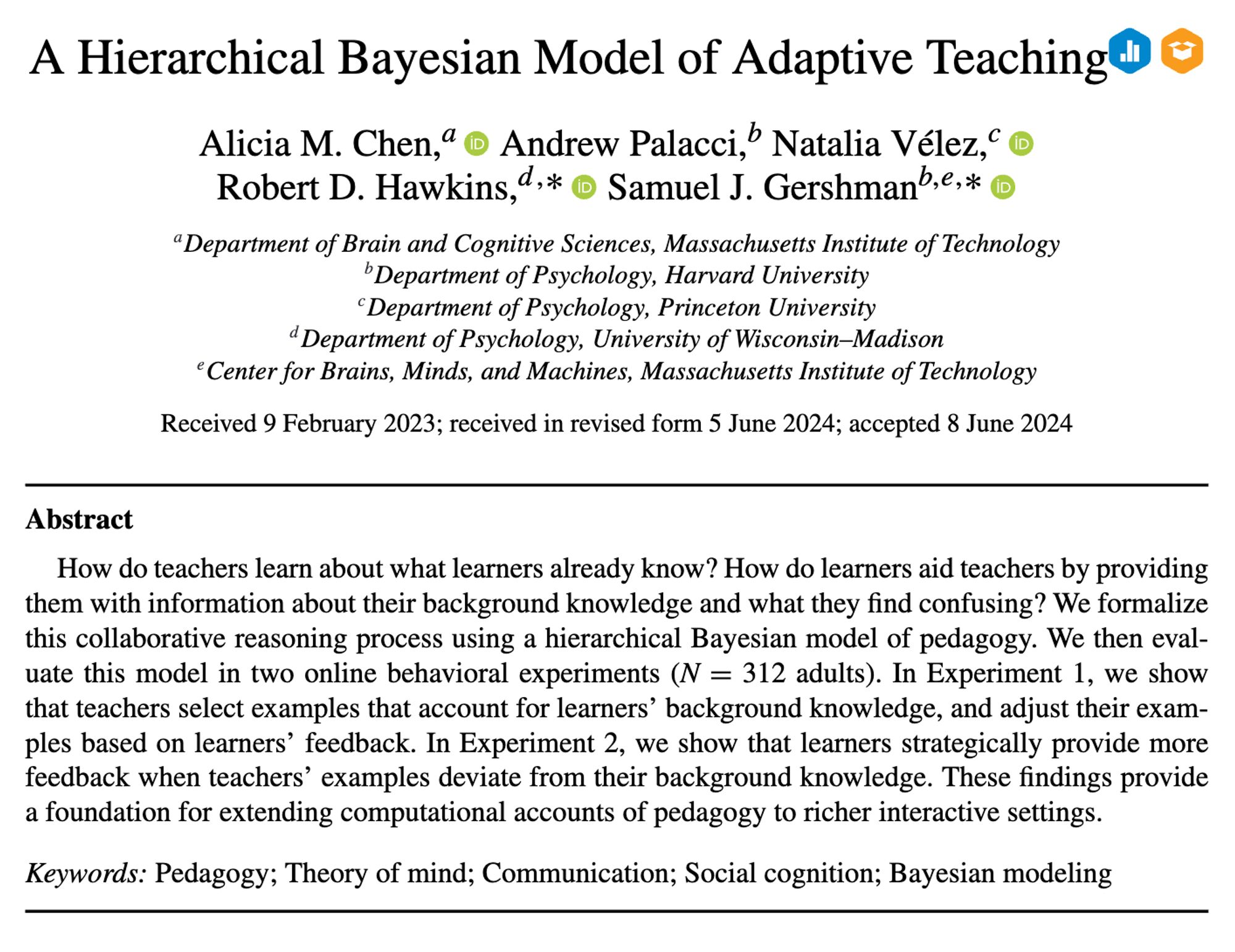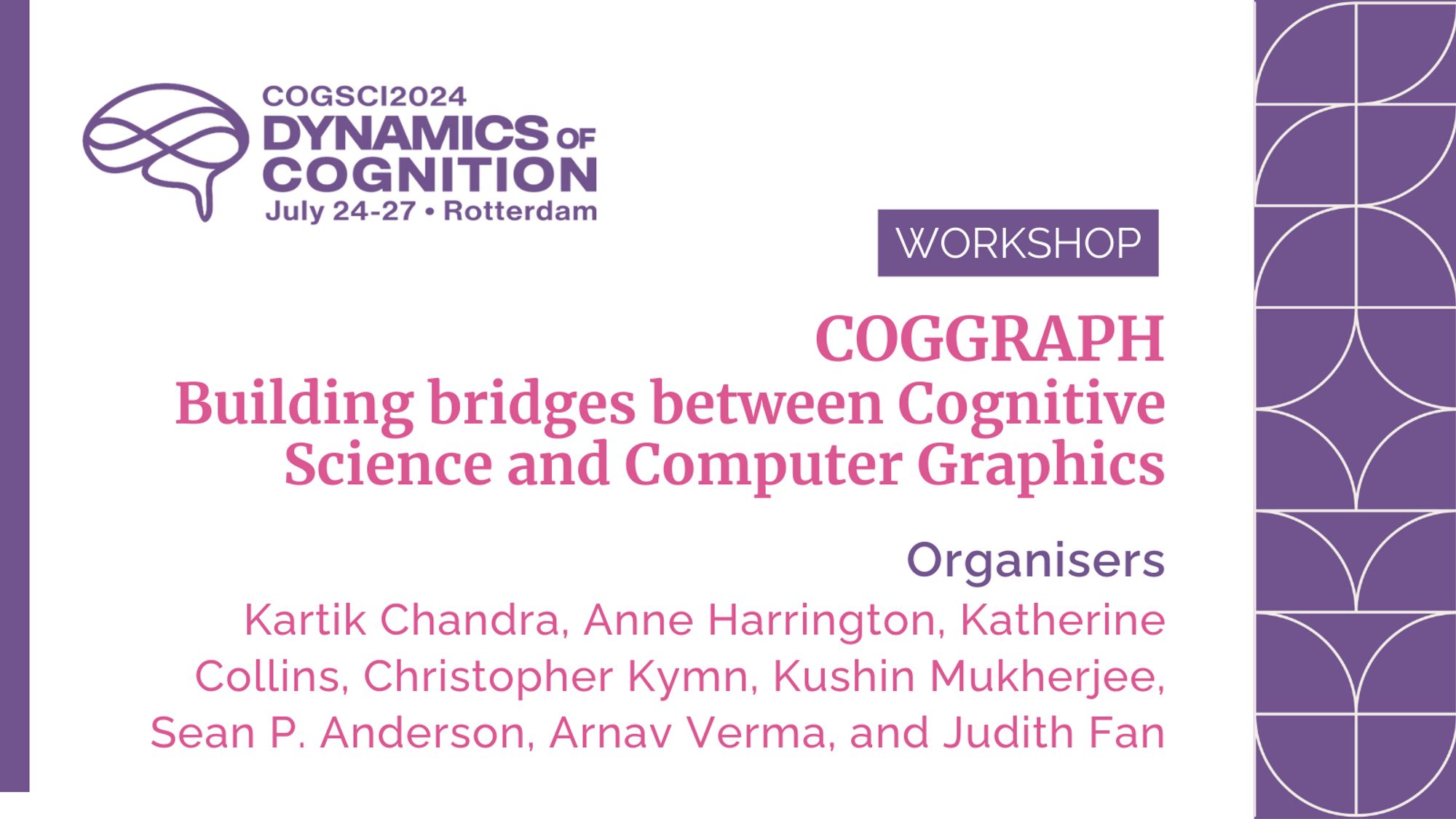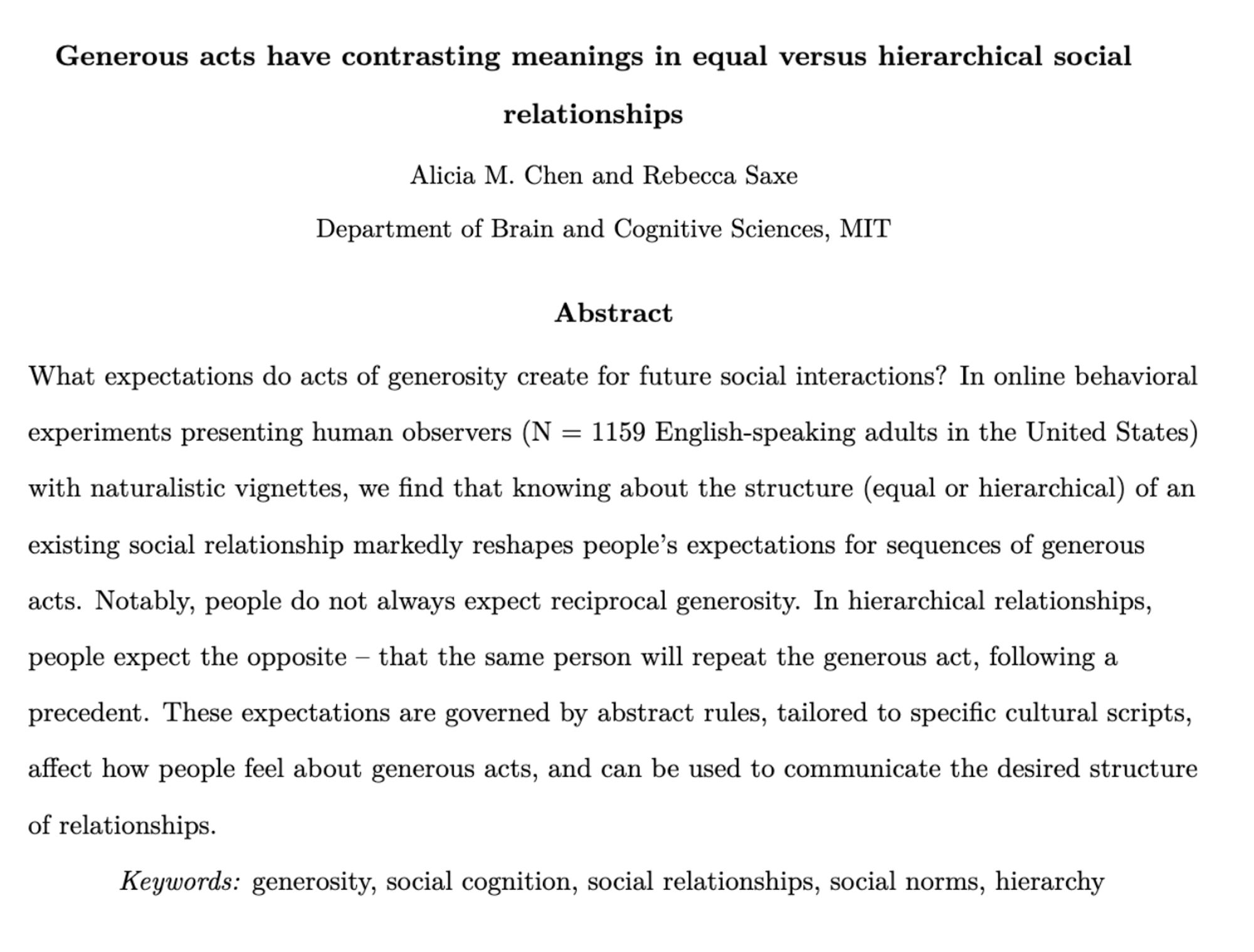Code, data, preregistrations available at osf.io/ubxjr/ Additional thanks to our editor and anonymous reviewers, for their thoughtful and detailed suggestions that improved the paper! (4/4)

Hosted on the Open Science Framework
We then test this model — which predicts that teachers and learners use rational inference to update their beliefs about each other in response to observed communication from their partner — in two behavioral experiments. (3/4)

We extend Bayesian models of pedagogy to account for how teachers and learners interact to resolve uncertainty at two levels: (1) the learner’s uncertainty about the target concept; and (2) the teacher and learner’s higher-order uncertainty about *what the other knows*. (2/4)
Our paper, "A hierarchical Bayesian model of adaptive teaching," is now out in Cognitive Science @cogscisociety.bsky.social@natvelali.bsky.social@rdhawkins.bsky.social@gershbrain.bsky.socialonlinelibrary.wiley.com/doi/10.1111/...

People are really good at creating conventions - new ways of talking - during dialogues. But what happens in larger groups? And what about when people can only respond using 😁?! New paper by Veronica Boyce, Robert Hawkins, Noah Goodman, and me, now out: www.pnas.org/doi/10.1073/...
New preprint. Feedback welcome! Example yesterday, in the wild. Me: "If I do a nice thing for my friend, we both expect they will later do a nice thing for me, but if I do a nice thing for you, then we both expect that I will keep doing that nice thing for you. Why?" Reply: "Cuz you're my Mum!"
More in the preprint! osf.io/preprints/ps...osf.io/ywbqu/ Feedback welcome!! :) (11/11)

